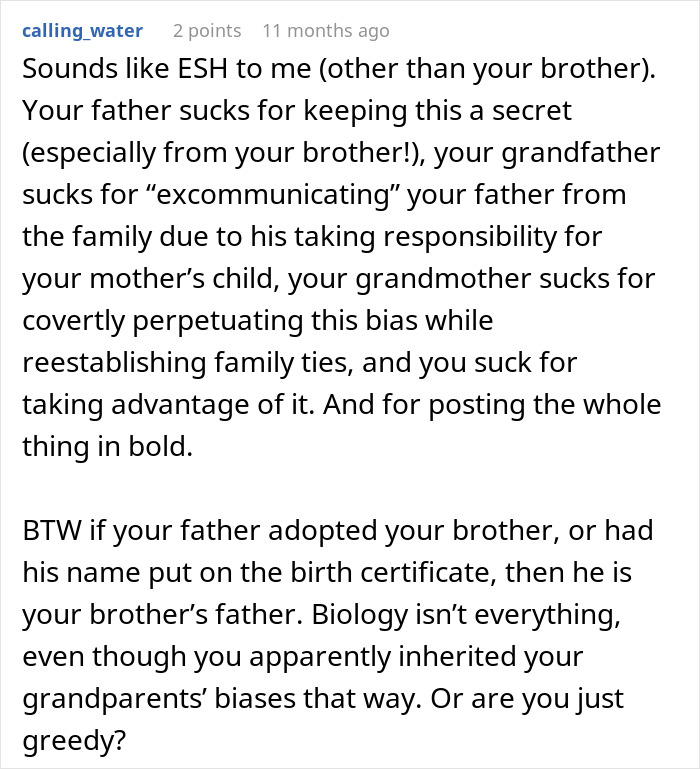[ad_1]
Coping with a death in the family is generally not easy. There’s the emotional aspect of grief. And there are the practicalities that need to be sorted. Then, of course, there’s honoring their last wishes, which often come in the form of a will and testament.
One woman caused quite a bit of confusion when she cut her son out of her inheritance and left his share to her granddaughter instead. She also penned an explosive letter before her death, unearthing a long-held family secret that her son had been keeping all along. The granddaughter is torn between keeping her inheritance and the dark secret, or sharing it with her father and brother. She turned to the internet for advice. Bored Panda reached out to Dale Sperling, the CMO of Trust & Will, a company specialising in estate planning. He gave us his opinion on the matter.
We can choose to take secrets to our grave, or we can reveal them before we die

Image credits: Jessika Arraes / Pexels (not the actual photo)
This woman’s grandmother spoke to her from beyond the grave by dropping a bombshell in the form of a letter

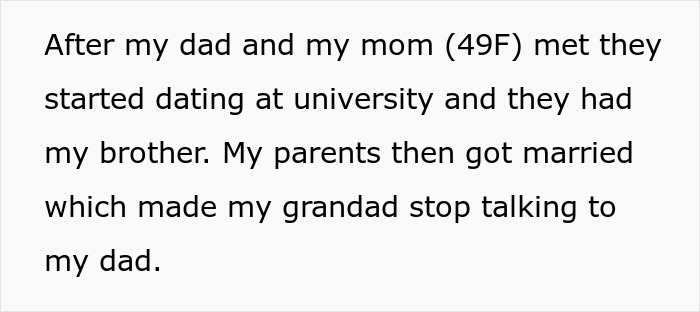



Image credits: freepik / Freepik (not the actual photo)





Image credits: prostooleh / Freepik (not the actual photo)
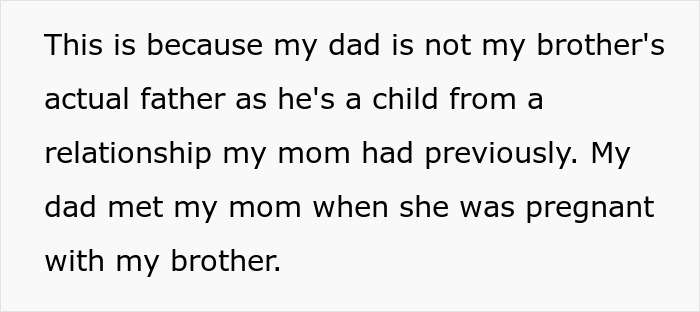
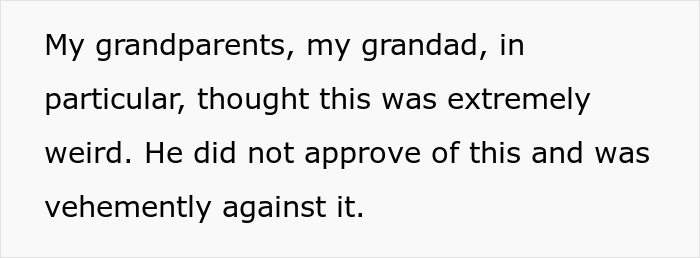
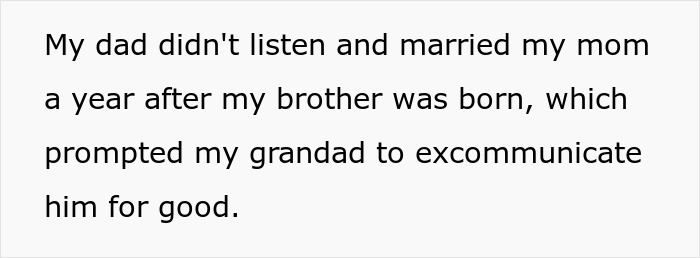


Image credits: rawpixel.com / Freepik (not the actual photo)


Image credits: combientu

Image credits: Aaron Burden / Unsplash (not the actual photo)
“Secrets can ripple through generations”: an expert weighs in
“This story is a poignant reminder of how secrets and unresolved family dynamics can ripple through generations,” said Dale Sperling during our interview. “While the grandmother’s letter provides clarity, it also unveils a hidden truth that could deeply affect the family.”
Sperling added that the granddaughter’s decision to honor her grandmother’s wishes shows respect for the estate plan. “However, she should weigh whether withholding the letter’s content protects her family or perpetuates the secrecy that caused this situation. Transparency can sometimes heal wounds, but it may also open new ones,” added the estate planning expert.
He said that in situations such as these, it’s crucial to balance respect for the deceased’s wishes with the emotional well-being of the family. “Consulting with a neutral third party, such as a therapist or estate mediator, can help navigate such sensitive decisions,” suggested Sperling.
“An important takeaway is the value of open communication while drafting an estate plan,” he added. “Addressing family concerns early can prevent misunderstandings and disputes.”
It’s not unusual for people to write letters that are meant to be read after their death
Sperling told Bored Panda that it’s common for people to leave letters for their loved ones. “These letters often serve as a way to express sentiments that may have been difficult to articulate during life, explain decisions made in the estate plan, or share final messages of love and guidance,” he said.
But added that letters can be a “double-edged sword”. “While some letters bring closure and comfort, others might inadvertently stir conflict, especially if they reveal long-held secrets or contain emotionally charged explanations,” warned Sperling.
Tammy McDonald is a life coach who specializes in grief and loss. She recommends that people plan ahead and gift their loved ones with a letter that they can treasure forever. McDonald suggests including things like ‘I love you’. Or an apology for leaving them. You can also ask for forgiveness, give forgiveness, release them to live their lives, comfort them, and of course, say goodbye.
“The letter isn’t about you or your death. It is about your loving your family and wanting to care for them even after you are gone,” said McDonald. The life coach says you should be mindful of what you write, and warns against leaving negative messages that could cause pain or confusion.
“Once our physical body takes its last breath and the heart beats the last time, things on earth are no longer about us. They shift to being about comforting those who are left behind,” she said. Some of the things McDonald believes you should avoid are noting the flaws or failures of loved ones, pitting family members against each another, blaming, attacking or having a ‘last dig’ at someone.

Image credits: Pablo Merchán Montes / Unsplash (not the actual photo)
Some people pay big money to confess their secrets after they die
Bill Edgar considers himself a ‘concierge for the dying’, and helps carry out people’s final wishes. Sometimes this means making sure a secret stays buried, other times it’s to let the skeletons out of the closet. In 2020, he was charging a flat fee of 10,000 Australian dollars for his unique services.
The private investigator, who hails from Australia, got dubbed the ‘Coffin Confessor’ after he started gatecrashing funerals and dropping bombshells left, right and center. “I don’t just crash a funeral to let loose on the bad stuff. I’ve let some beautiful messages go, or some really funny ones, or I’ve done a face-to-face delivering gifts from the afterlife, things like that.”
Edgar says that everyone goes to the grave with at least one secret. “Every person on the planet has a skeleton in the closet. It’s just a matter (of) if you want to let it out or not,” he said. “It could be good, bad, funny or sad, it doesn’t matter what it is.” The “Coffin Confessor” says he once had to tell mourners at a biker’s funeral that his client was gay. And his lover was in the audience.
Not everyone agrees with spilling the beans after your death. Psychologist Shona Innes believes people should resolve things while they’re alive. “It’s certainly not healthy,” she said, adding that dropping “a bombshell” from the grave, then leaving grieving relatives to deal with it, could be very dangerous.
“Think about it real hard”: many netizens felt the woman was wrong for not sharing the money
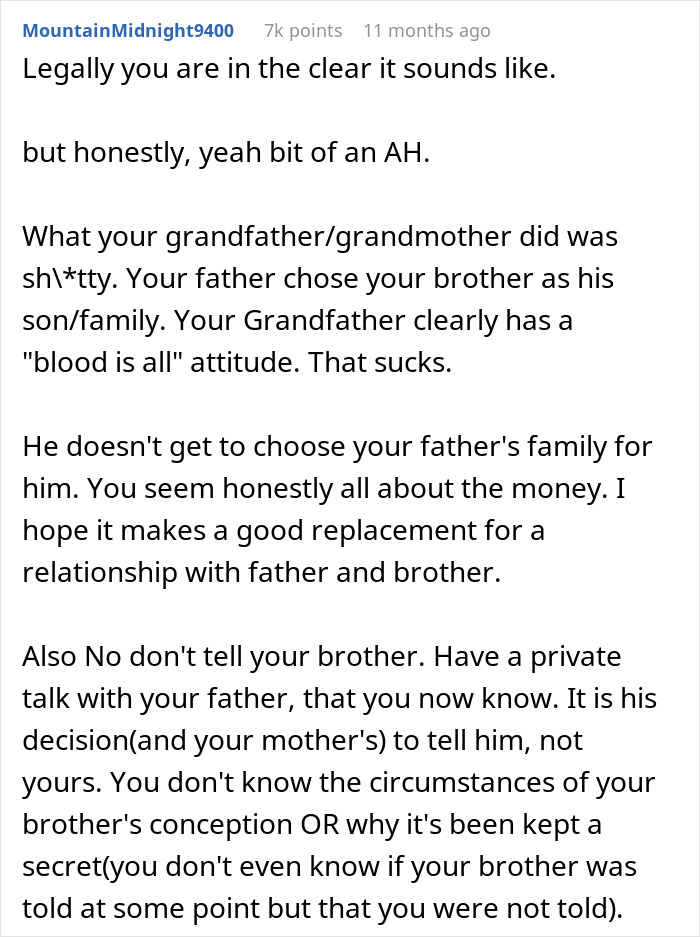

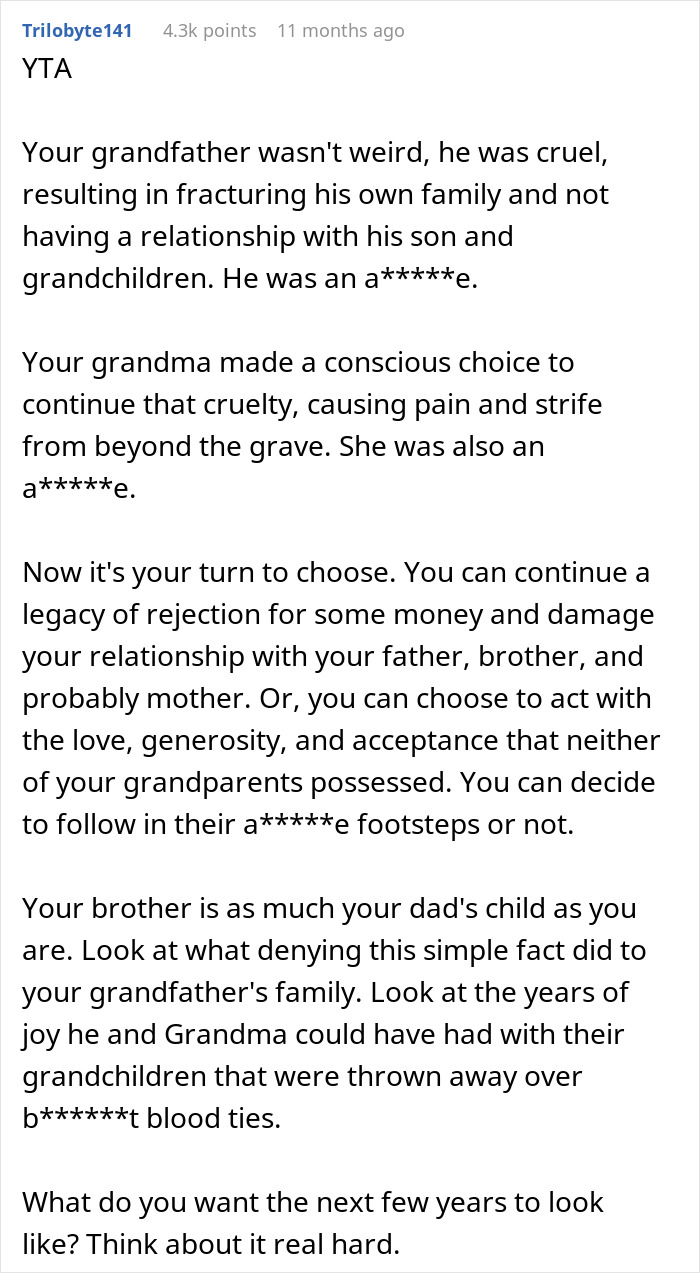

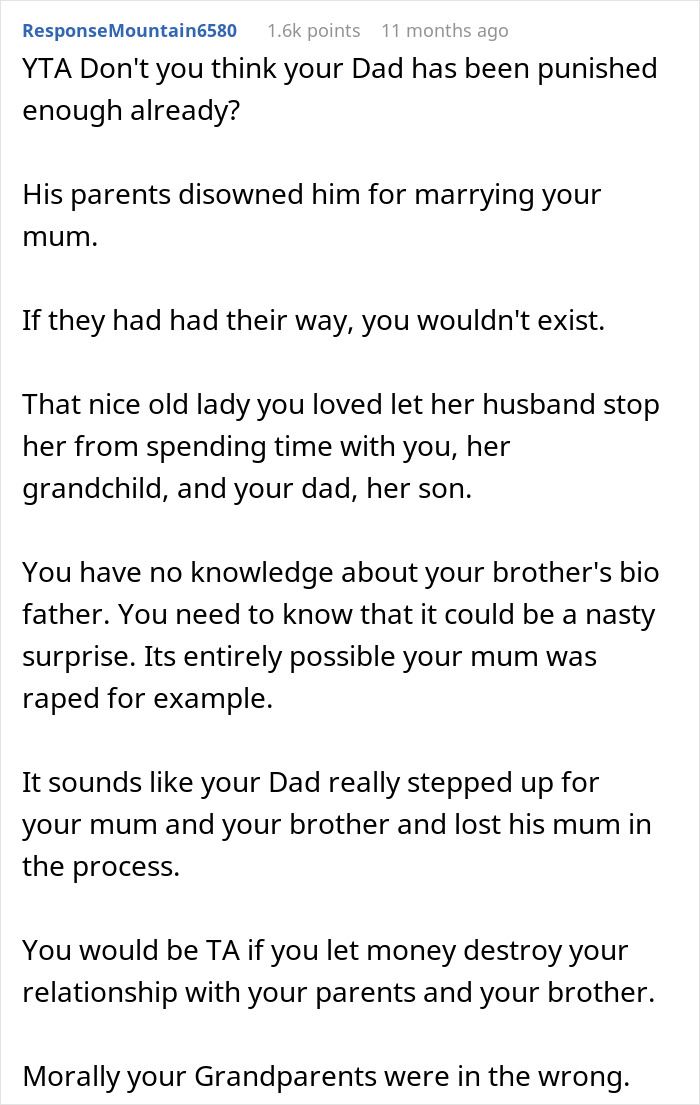
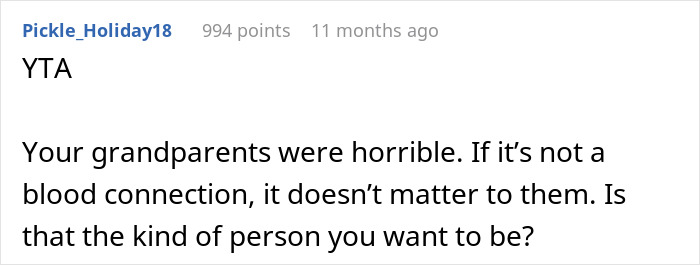

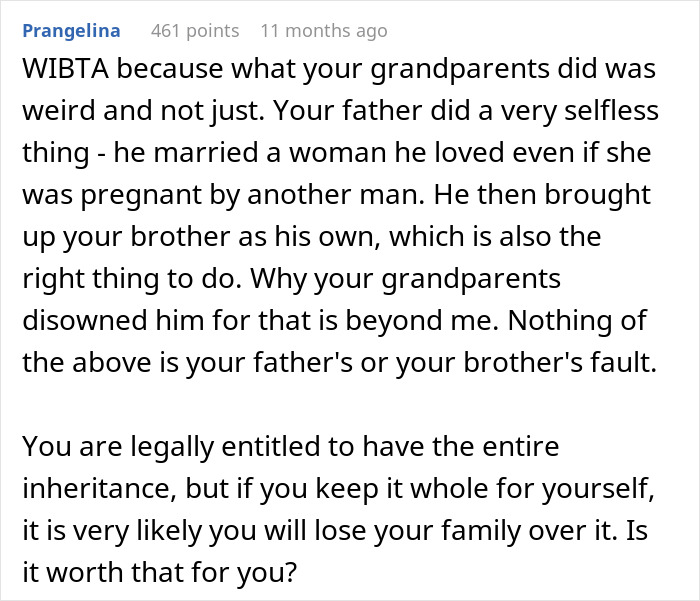

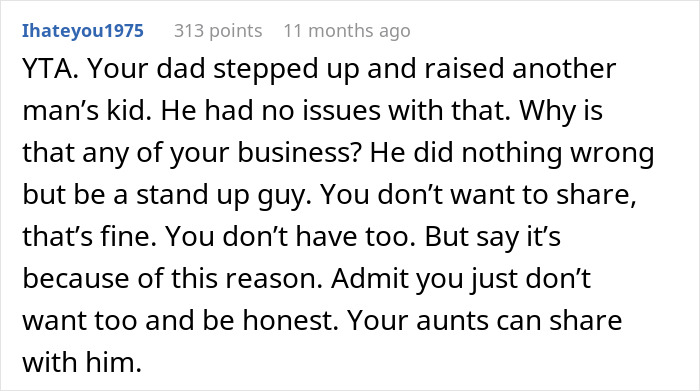
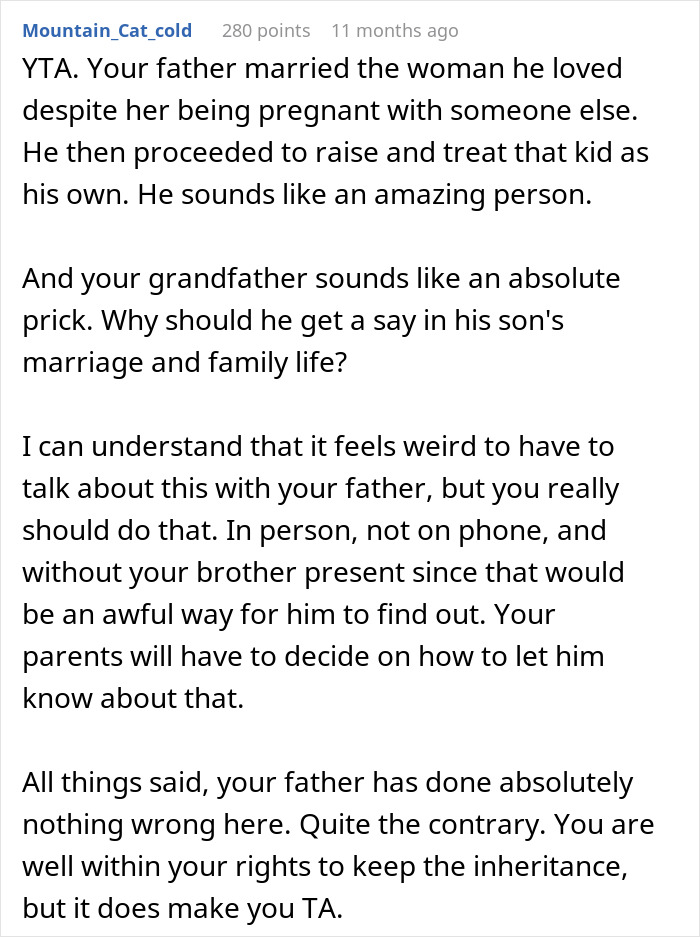




Other people felt the woman was justified in keeping the entire inheritance


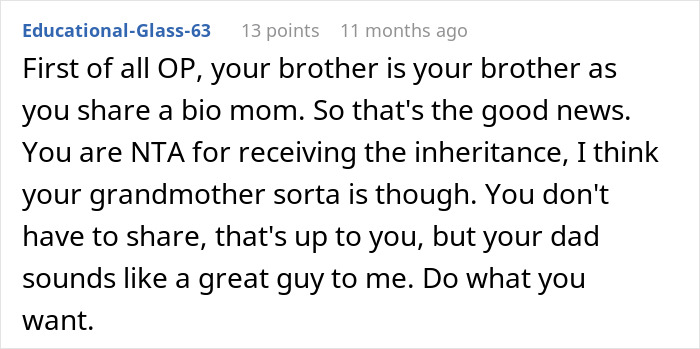


Some netizens felt that everyone, except the brother, needed a reality check
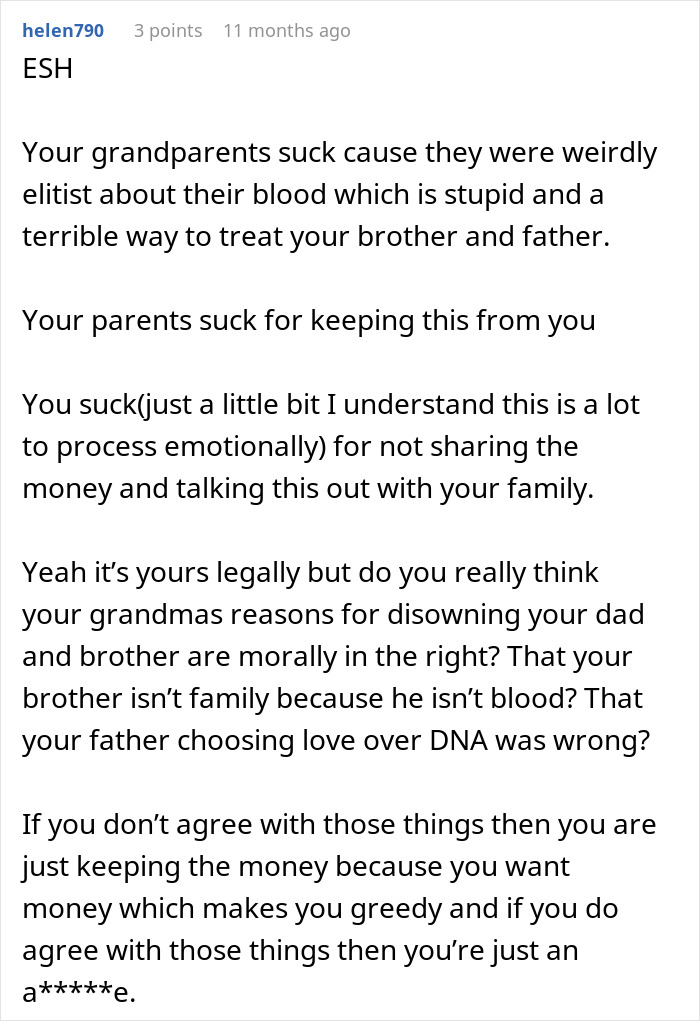


The post Grandma Spills Secret After Death, Leaves Son Without Inheritance: “He Doesn’t Know That I Know” first appeared on Bored Panda.
[ad_2]
Source link























